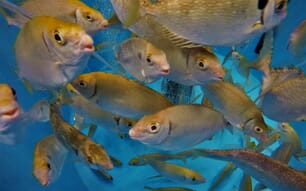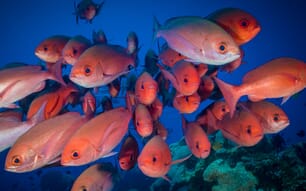According to the authors of the article, published in the journal Hormones and Behaviour, these results will help further research of the factors that control the growth and feed efficiency of cultured fish and will open new avenues towards sustainability of animal production systems.
"By blocking the hormone system in zebrafish neural systems that regulate satiety are modified, so that these animals could eat more. When fed with the same amount of food than unmodified fish, its weight increases by up to 60 per cent and its length by 15 per cent, showing greater feed efficiency," explained CSIC researcher José Miguel Cerda, the Institute Aquaculture Torre de la Sal.
Improvements in feed efficiency, feeding strategies and growth of cultivated species are a priority in the field of aquaculture, since it depends on sustainability and availability of fish in the market at affordable rates.
The mechanism identified in the study is based on the inhibition of hormone melanocortin system. This system also controls dorsal-ventral pigmentation of the fish, so that transgenic specimens are easily identifiable, added Josep Rotllant CSIC researcher of the Institute of Marine Research in Vigo.
This feature distinguishes them from transgenic salmon.
This study also involved the University of Vigo, the Institute of Biochemistry and Physiology Evolutionary St. Petersburg (Russia), Norwegians Institutes of Food, Fisheries and Aquaculture Research in Norway and Vanderbilt University (USA).
Guillot Raul, Raul Cortes, Sandra Navarro, Morena Mischitelli, Victor Garcia-Herranz, Elisa Sanchez, Laura Cal, Juan Carlos Navarro, Jesús Miguez, Sergey Afanasyev, Aleksei Krasnov, Roger D Cone, Josep Rotllant, Jose Miguel Cerda-Reverter. Behind overexpression melanocortin antagonist in the zebrafish brain: a behavioral and transcriptomic approach. Hormones and Behaviour. DOI: 10.1016 / j.yhbeh.2016.04.011




